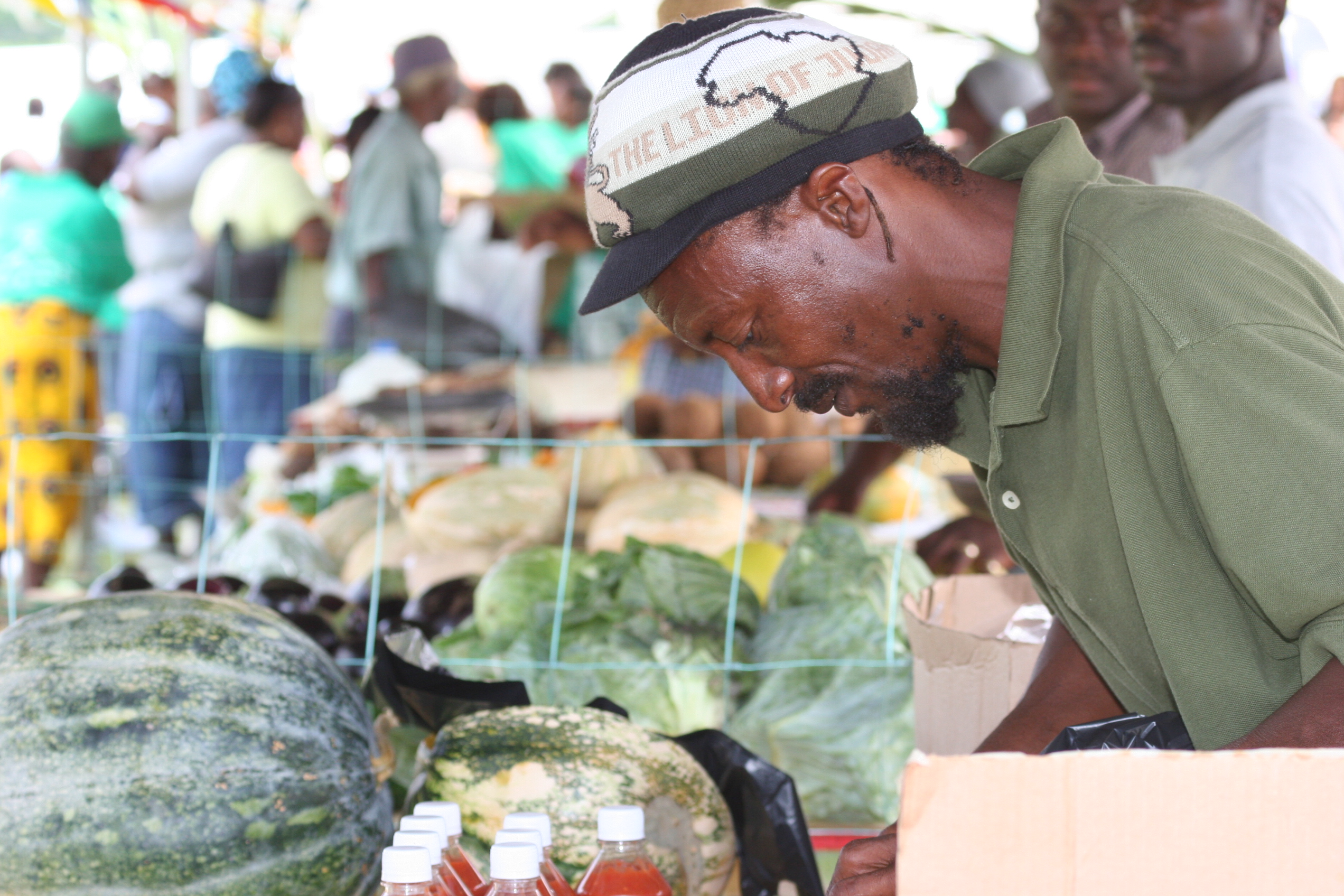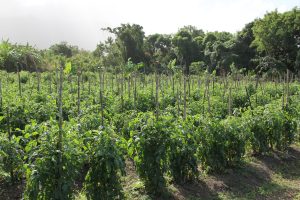Long-time Nevis farmer remembered for farming legacy

NIA CHARLESTOWN NEVIS (February 09, 2023) — The late Mervin “Mansa” Tyson carried on with his passion of farming till his passing on February 01, 2023, and so, leaves behind a legacy of his pioneering works in the development of agro-tourism in St. Kitts and Nevis.
Mr. Devon Liburd, Chief Executive Officer at the Nevis Tourism Authority (NTA), recalls Mr. Tyson’s addition to the tourism industry on Nevis when he spoke to the Department of Information on February 08, 2023.
“Mansa has been a trailblazer in the development of the agro-tourism sector on the island of Nevis. During the years the Nevis Tourism Authority held its culinary event Nevis International Culinary Heritage Exposition (NICHE), Mansa’s farm operation became an annual feature on the programme. His participation in NICHE thrust him into the spotlight to the point that his farm became a vital stop on the itineraries of press and familiarization visits hosted by the Nevis Tourism Authority,” he said.

According to the CEO, the NTA had recorded Mansa’s strides in agro-tourism more than 20 years ago.
“In one of our press releases from 2010 giving a background into the culinary scene on Nevis, we described Mansa’s Last Stop as ‘an organic farm and produce stand owned and operated by Mansa, a dedicated Rastafarian who grew up on the island. Guests are welcome to walk the orchard to see the interesting produce he grows including cashew fruit, pomegranates, custard apples, noni fruit and a variety of mangoes. Many guests choose to just relax on the front porch and sample his homemade organic ginger beer and freshly-made juices such as sorrel, starfruit and mango, just to name a few,’” he said.
Mr. Liburd noted that in 2008, Mansa’s farm was one of two in St. Kitts and Nevis identified for an Inter-American Institute for Cooperation on Agriculture (IICA) and Organization of American States (OAS) project to strengthen agro-tourism linkages in the federation. This was spearheaded by Mr. Augustine Merchant, the IICA Country Representative at that time.
Also, Mansa’s work in agro-tourism is also well documented by others. In an article entitled “Developing Agritourism on St. Kitts and Nevis” by Mr. Conrad Kelly, Agricultural Consultant, published in 2008 in the Premier edition of the St. Kitts Nevis Food and Drink Caribbean magazine, he pointed to the benefits to the federation’s agriculture sector due to increasing stay over and cruise visitors in 2007-2008, in which he made reference to Mansa.
“A small farmer in Nevis is presently pioneering a project that brings the two industries together. Mansa, operating from a six-acre farm in Cades Bay, is demonstrating what can be done in the federation to link agriculture with tourism in ways that bring opportunities for increasing farm income while enhancing the tourism product.

“In addition to the production of vegetables and fruits on his farm, Mansa has developed an on-farm sales outlet for his produce, entertains locals and visitors at his barbeque agro-eatery on weekends, and has struck up a relationship with the famous upscale Four Seasons Resort on Nevis to schedule tours to his farm… Moreover, his outlet buys, displays and sells produce from other farmers at his sales outlet. Mansa has become a one-stop shopping micro-business.
“Clearly, on St. Kitts and Nevis there are expanding opportunities to further develop Agritourism linkages in the areas of farm tours, attractions and entertainment; in herbal, wellness, eco, organic and garden tourism; in agricultural, educational and scientific tourism; in historical and anthropological tourism; in cultural and heritage tourism; and in culinary tourism, including increasing the trade of fresh and processed food to hotels and restaurants. The future for Agritourism in St. Kitts and Nevis is extremely bright,” Mr. Kelly wrote.
In another article entitled “Mansa” appearing in the same magazine written by Guilliver Johnson, he recalled a conversation with the Cades Bay farmer who hailed from Charlestown indicating his early interest in farming.
“One sunny afternoon in Nevis I met with Mansa, a farmer and shop owner, in order to interview him. ‘No problem’, he said, and started by telling me that he was a city child. ‘Which city?’ I asked, ‘Charlestown’, he replied! ‘City child’ is a relative term in the Caribbean; Mansa threw back his head and laughed along with me. ‘I knew I was going to be a farmer from early. I put my occupation down as FARMER on my first voter registration, even though I had not begun, I just knew,’ he quoted Mansa as saying.
The author captured Mansa’s intense interest in farming as he voiced his feelings on the matter.
“Mansa has worked his small holding since 1992; he humbly claims farming is not so hard. He continues by questioning why the Caribbean islands are not more self-sufficient with food. ‘After all,’ he surmises, ‘at one time we supplied a great proportion of the USA and the UK with vital foodstuffs including vegetables, banana, sugar, tobacco; we should be masters of farming! As a country, first we must be able to feed ourselves, that is basic, and that’s the importance of agriculture. Farming also works well with the tourism service industry. The natural cycle of fruit and vegetables coincides very well with the supply required by the restaurants and hotels during the tourist season’,” he said.
Mr. Johnson believed that farming was a perfect existence for Mansa.
“It’s fulfilling to know you are feeding so many; there are so many spin offs, you can use everything in farming, there is no waste. For example, you can make wines, jams, and local juice. Dry wood and manure help biomass ecology. This is true sustainability,’he described Mansa as saying.
